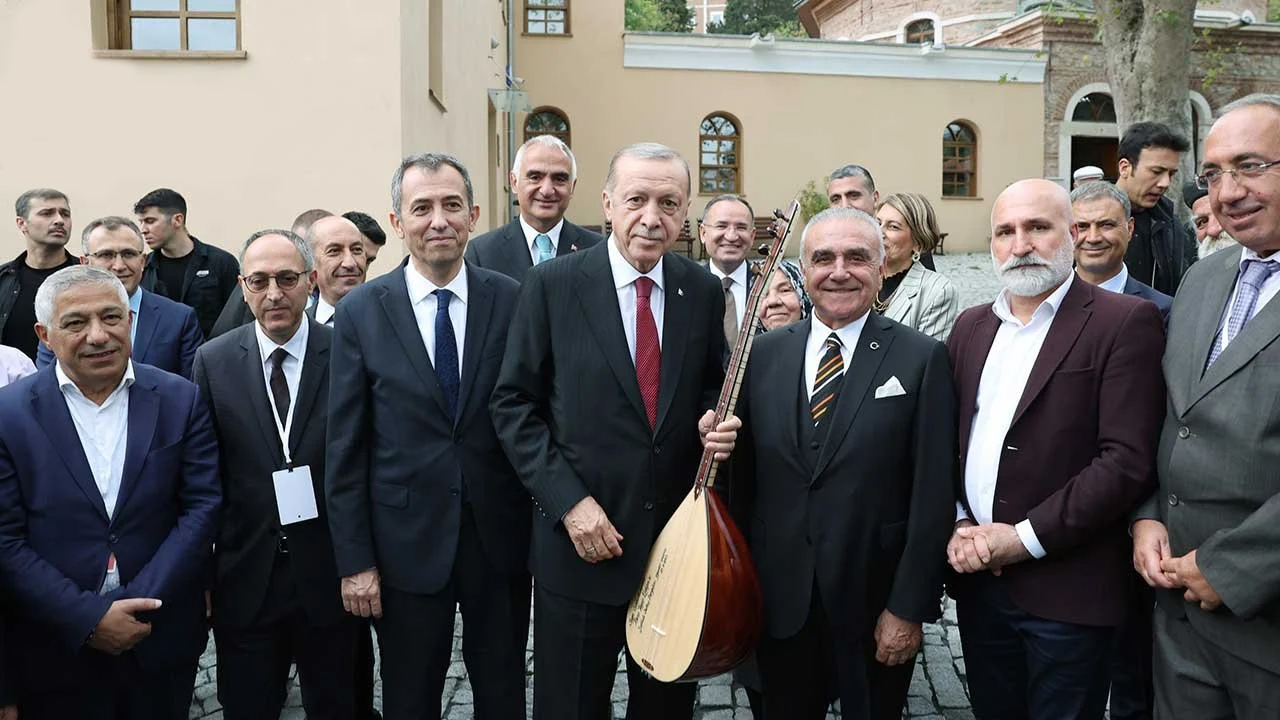Plans revealed by Turkish President Recep Tayyip Erdoğan on Friday for recognising the places of worship for people of the Alevi faith have been severely criticised by the leaders of the religious minority’s community organisations.
The members of the Alevi faith, which make up roughly 15-20 percent of Turkey’s population, have been fighting for years for official recognition of their religion and equal treatment in terms of state support provided to places of worship.
According to 2022 figures, in Turkey there are 1,586 cemevis, the Alevi places of worship, which have mainly been established in urban areas as cultural centres due to a lack of official recognition.
Erdoğan and his government signalled plans to take action to meet the demands of the Alevi community at the end of 2021. Government officials visited all cemevis in the country and gathered 8,740 demands.
As elections approach, Erdoğan earlier this week announced that he will soon reveal new plans for the Alevi community. The president disclosed the new government policy on Friday, stating that a “Culture and Cemevi Presidency” will be established under the Culture and Tourism Ministry to coordinate the services for cemevis. This means that the second largest religious minority of the country will still be treated differently than the majority Sunnis, whose religion is regulated by the Directorate of Religious Affairs, a huge public body with a budget in 2022 that was bigger than seven out of 17 ministries of Turkey.
Many members of the Alevi community, which is mostly left and centre-left with rooted secularist tendencies, oppose the Directorate of Religious Affairs and state control on religious beliefs.
According to Mustafa Aslan, the head of Alevi Bektashi Federation, Erdoğan’s new attempt is insincere and reminiscent of his 2009 initiative for an Alevi opening that failed.
Recalling that both the European Court of Human Rights and Turkey’s Constitutional Court have called on Turkey to respect the rights of the Alevi faith, Aslan said that the new policy still treated the minority religion as a cultural issue and aimed to establish an alternative organisation for Alevis.
“We want our constitutional rights. There is no point in watering down of the demands just 5 minutes before elections,” Aslan told Gazete Duvar, referring to the upcoming elections currently scheduled for 2023.
The new body to be established under the Culture and Tourism Ministry will oversee the activities of all associations and federations of the Alevi community, according to Aslan.
“This is an insult to Alevis. This is an insult to Alevis’ democratic struggle, their legally established organisations, it means ignoring them,” he said.
“It is impossible for us to accept an approach that tries to define Alevis, that tries to create its own version of Alevisim,” said Cuma Erçe, the head of Pir Sultan Abdal Association.
Erçe said that Alevis opposed the existence of the Directorate of Religious Affairs as it contradicts with the principle of secularism, yet the government’s new plans implied the establishment of a similar body for Alevis.
“They want to create the Directorate of Religious Affairs of Alevis. We cannot accept that. The fact that they are going to open it under the Ministry of Culture is the result of an approach that sees Alevis as a cultural group rather that a faith group. We cannot accept that as well,” he said.
Ali Kenanoğlu, an Alevi deputy of the pro-Kurdish Peoples’ Democratic Party (HDP), said that Erdoğan’s announcement had revealed the state’s plans to control the Alevis.
“Of course this attempt is far from meeting the demands of the Alevis. It is an attempt to manage the cemevisi with a presidency and a culture of charity without giving them the official status of a prayer house,” he told Artı Gerçek.
“This attempt aims to eliminate the unique institutional structure of Alevis and to tie them to the government. In our opinion, they should leave Alevis free, the state should not interfere with religious faiths, the Directorate of Religious Affairs should be shut down and all religious beliefs should be handed over to civil life,” he said.
Source:MedyaNews



